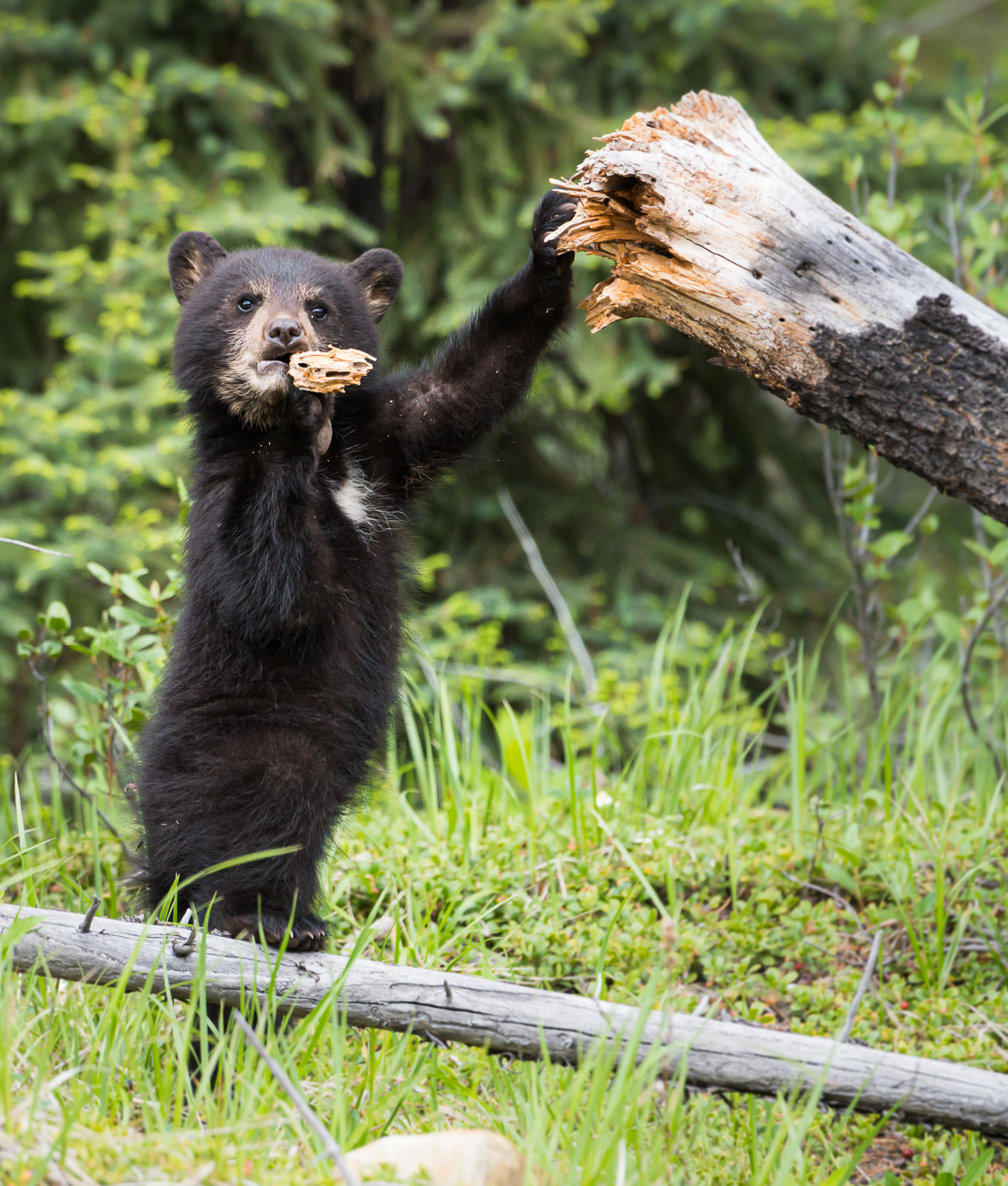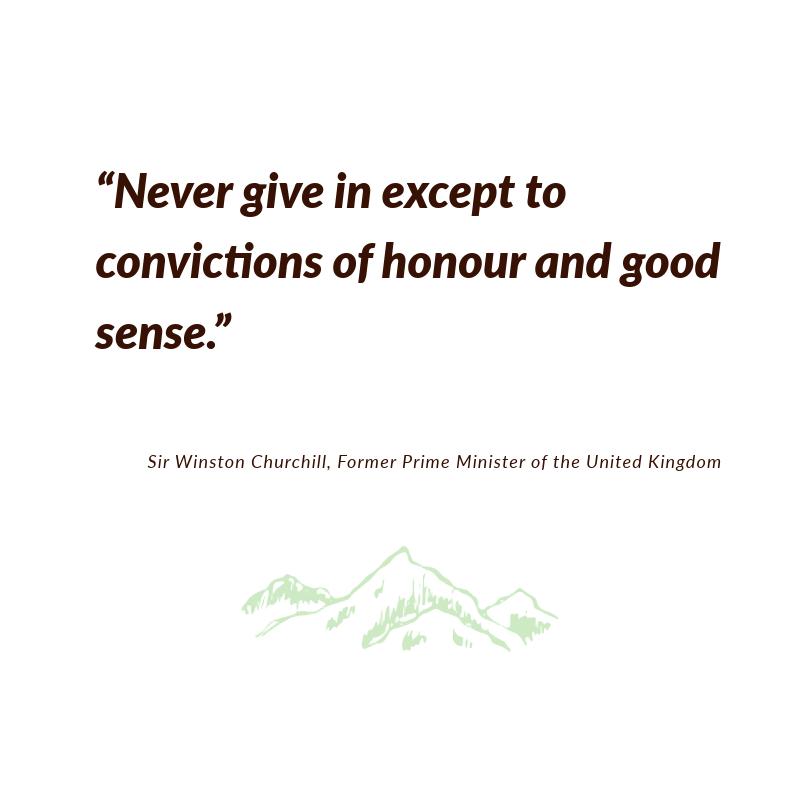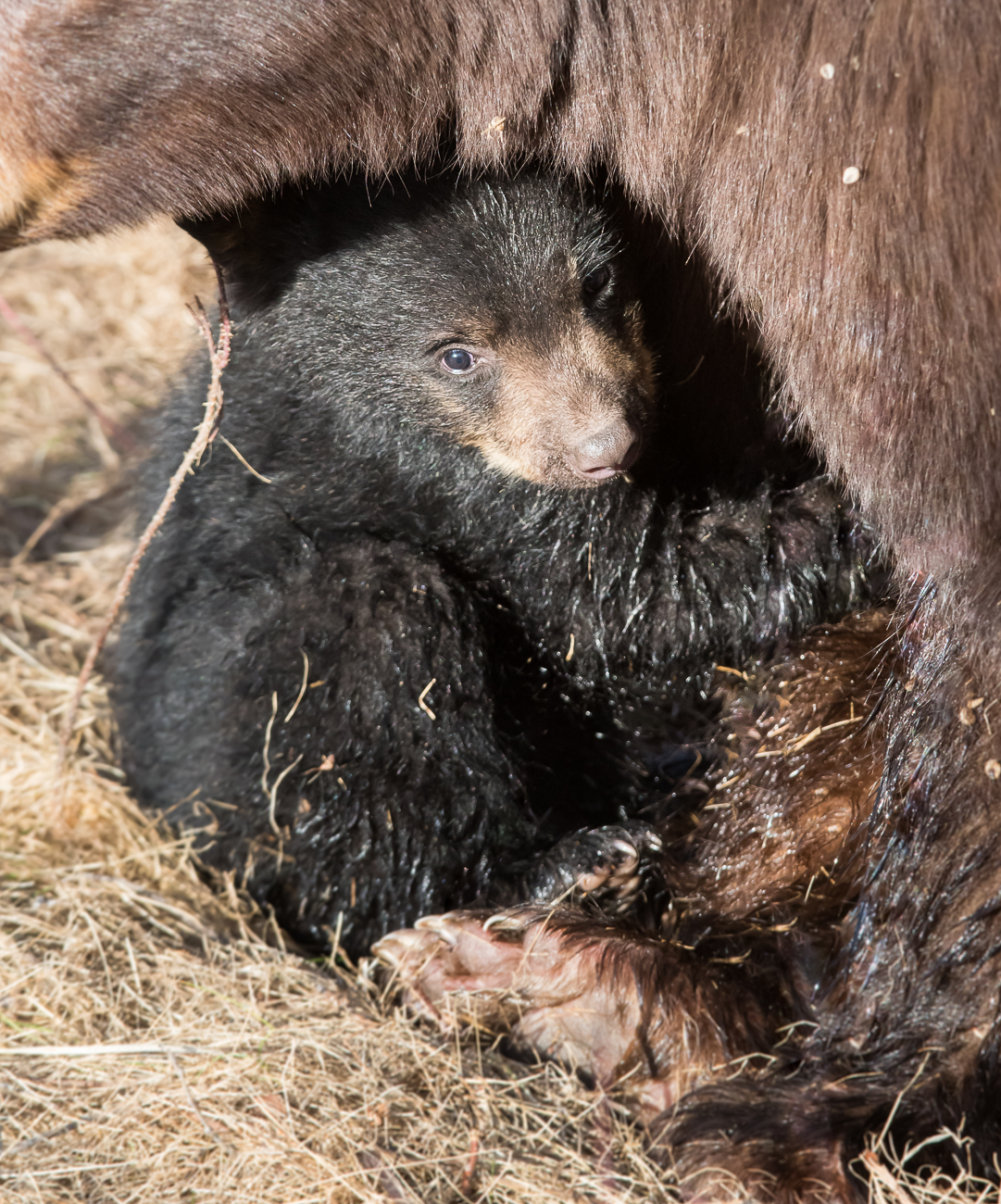keep going
Chapter Ten
 ‘Never, never, never give up.’
‘Never, never, never give up.’
It’s a famous quote by a famous man at a dire time.
Except that famous man – Winston Churchill, prime minister of Britain during the Second World War – never actually uttered those words.
Which speaks volumes about our society.
We lionize those who steal victory from the jaws of defeat; we make wall hangings of quotes we made up that we wish people like Churchill said because we all want to believe that if we just push a little harder we too can succeed.
Now, of course, success is the by-product of trying: You can’t cross a finish line if you don’t first step across the starting line.
But so often how and when we cross the finish line – if we can even reach the finish line – isn’t always something we control.
“We are just steward of a moment in time.” – Barbara Cartwright | Welfare Advocate
“Because there’s place, and there’s time. And sometimes you’re in the right place, but it’s the wrong time. And sometimes it’s the right timing but you’re at the wrong place.” – Marie-Eve Marchand | social Innovator
“Sometimes things can be done quickly. Other times it can take quite a while.” – Mike Farnworth | BC Cabinet Minister
“Every time is going to have its challenges and it’s going to have its opportunities.” – Salimah Ebrahim | Journalist & Entrepreneur
“There’s been people every generation working towards evolving. They’ve handed it to my generation and we’re going to hold on to it, and we’re going to make some changes, and I’m going to pass it on to the next generation. And then it’s going to keep evolving. And what we haven’t achieved yet is okay, we’ll keep moving. Even though sometimes it feels so painful.” – Barbara Cartwright | Welfare Advocate
 Sometimes the simple act of trying – and failing – is all we can do. All we should do.
Sometimes the simple act of trying – and failing – is all we can do. All we should do.
In many ways, it’s why trying and failing can also be a success.
Let me explain.
“Never give in. Never give in. Never, never, never, never – in nothing, great or small, large or petty – never give in, except to convictions of honour and good sense.”
This is Churchill’s actual quote.
And despite what we often assume, he wasn’t imploring Parliament – or society as a whole – to keep going in the face of defeat, nor was he pushing an idea. Churchill was sharing the lesson he learned from his journey.
In ways “great or small, large or petty” we will all face failure. We will all stumble. We will all have setbacks.
Maybe that’s right now, in this course. Maybe it’s with your idea that you believed could succeed – would succeed. And hasn’t.
It’s totally possible success is just another step away. A bit more effort and a bit more hustle is all that’s required to find success. But not always.

Sometimes an idea fails: The timing is wrong, the answer is off, the process is flawed. And while society tells us to never, never, never give up, it’s in these moments that we need to heed the real lesson from the real quote: “Never give in except to convictions of honour and good sense.”
Why?
Because if “good sense and good honour” dictates that this is not your time, the lessons learned in this moment – in this failure – might allow you to pivot to something better.
Often what seems like quitting – like failure – can in fact be exactly what’s needed to re-purpose our creativity toward the next idea, ensuring that we’ll have the fortitude to “never give in” when “good sense and good honour” shows us that this is the time.
“There’s no question in my own career that at times I’ve failed. I look at it as I didn’t lose the war, I lost the battle. So, I came back smarter, more resilient and able to go forward. I think it’s actually good to have an attitude that you can withstand a failure, that you can move on.” – Randall Howard | Angel Investor
“Overachieving type-A individuals? They need to hear that message: It’s okay to fail sometimes.” – Jane Thompson | Youth Advocate
“Every single time I do a project and learn something new. You only learn through trial and error.” – Mary Young Leckie | Movie Producer
“You can make change, even when you lose.” – Ian Waddell | Former Cabinet Minister
“I’ve taken tons of risks that have ended up in complete failures. But I’ve learned so much from those experiences. They’ve allowed me to reposition myself so that next time when I’m taking a risk, I know how to make the program or the project or the event succeed.” – Brandon Nguyen | Youth Leader
“What is that obstacle or challenge? What can I learn from it?” – Libby Garg | Entrepreneur & Indigenous Business Advocate
“You just need to know that it’s okay. It’s okay to make mistakes. If you don’t make mistakes, how else are you going to learn?” – Shianne McKay | Indigenous Community Builder
“If you only had the good, then you don’t really know how great things are. If you’ve had bad, the good and the great becomes greater.” – Jim Bottomley | Futurist
 However, since we often only see failure as a failure, we don’t always embrace it.
However, since we often only see failure as a failure, we don’t always embrace it.
And when we don’t embrace failure, we do fail at learning from it.
Sometimes, in our fear of failure, we even double down on mistakes and truly fail because we didn’t quit when we should have.
“I learned that you can’t please everybody. And, I mean, I’ve tried!” – Camilla d’Errico | Artist
“Don’t expect to be that kind of one-stop-shop for solutions.” – Garrick Ng | Storyteller & Entrepreneur
“If you’re going to rapid prototype something, we want you to fail. And the expectation is that if you do fail, that you’re going to document this and share this with your network, so that the other 30 organizations that are dealing with nature conservation or cancer research or whatever, don’t repeat the same problem.” – Gena Rotstein | Philanthropic Innovator
“If you decide along the way that you want to change your goals or change what you’re interested in, you need to accept that. As a scientist, it’s really important to be able to let go of ideas when they don’t work out.” – Laura Kennedy | Biologist
“Well-being promotes well doing. So, if you are well as a human, you will be a good leader. If I’m not okay, the work that I’m putting out in the world is not okay either.” – Ilona Dougherty | Youth Researcher & Advocate
“If I thought that I knew what I was doing and thought every single project I attempted was going to be perfect, I’d be massively disappointed.” – Mary Young Leckie | Movie Producer
“Good enough is really good. Getting really close is super important.” – Ian Bird | Sport Coach & Philanthropy Champion
“We need to start talking about how hard social and environmental change is and what it really looks like and the human toll that it has. And being real and being honest about just how challenging it is. I don’t want people to stop hustling. But what I do want to do is do that in a healthy way, where I’m giving good things to the world rather than depleting my own resources and, as a result, being a bull in a China shop.” – Ilona Dougherty | Youth Researcher & Advocate
“Resist this temptation to imagine that there’s an idealized outcome or an expectation associated with what it is you’re supposed to do or contribute or bring about.” – Ian Bird | Sport Coach & Philanthropy Champion
“Be hard on yourself in that you should be ambitious for yourself and be ambitious for the community in which you live. But don’t hurt yourself. Don’t be hard on yourself in a punitive way. Allow yourself to grow. Allow yourself to learn and know everything will be okay. Just keep learning, keep growing and enjoy the people in the world around you. There doesn’t need to be a conflict between learning and having fun. In fact, the most learning you’ll do is when you’re having fun and the most fun you’ll have is when you’re learning. You can do it all. Having fun and learning and growing are all the same.” – Dr. Aleem Bharwani | Cumming School of Medicine